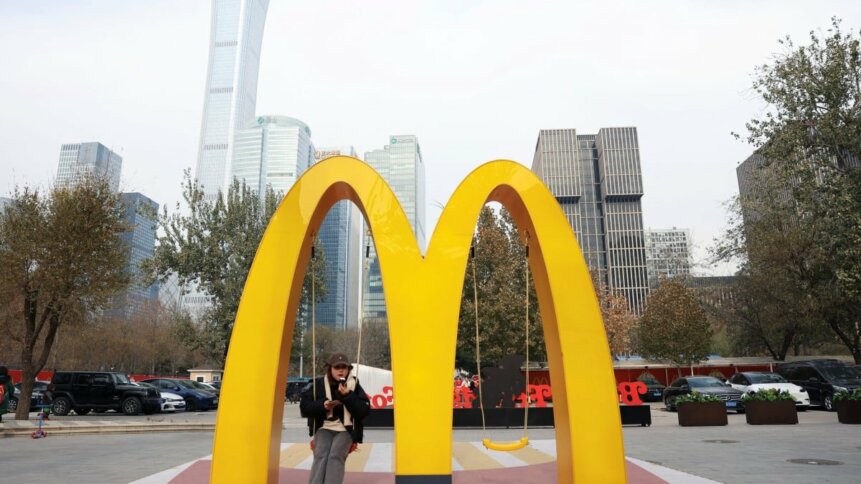Fast food unaffected by US-China chip war

• McDonald’s China has entereed into a new tech partnership.
• RFID tags will help the company speed its stocktaking process – and close any loopholes.
• McDonald’s China plans a further collaboration – this time with Huawei.
McDonald’s China has paired up with Cainiao to use RFID chips to improve supply chain efficiency. The use of radio frequency identification (RFID) was found during trials to reduce the time it took for staff to do a stocktake from one hour to 15 minutes.
A third-generation identification technology, coming after barcodes and QR codes, RFID has been widely adopted in supply chain tracking. With a built-in microchip, data from the product is transmitted through radio frequency signals.
The trial further showed that RFID technology improved the accuracy of inventory data by 30%. Deploying the tech will improve inventory and logistics efficiency, alongside which McDonald’s and Cainiao will explore digitization and automation for the supply chain.
So who is McDonald’s China partnering with?
Cainiao is the logistics business owned by Alibaba Group Holdings. Established in 2013, it’s the logistical backbone of the Alibaba empire and handled more than four million cross-border parcels daily in 2023.
Amid increased competition across its businesses, Alibaba sought to free up decision-making by restructuring the group; in March, Cainiao was ‘spun off.’ As part of this, it submitted its A1 filing to Hong Kong’s stock exchange last September.
Cainiao aims to raise at least US$1 billion according to sources cited in the South China Morning Post from September. The deal with McDonald’s (which will no doubt help achieve that goal) comes as Cainiao prepares an initial public offering (IPO) in Hong Kong.
McDonald’s isn’t doing the company a small favor, though: Cainiao moved into the RFID field in 2021 with the launch of its own tags which it said could achieve 99.9% accuracy. Just two years later, in April 2023, the company announced it had produced and sold over 100 million RFID tags.
What’s the deal?
Under the deal, McDonald’s China will deploy RFID tech on its supply chain with built-in tags on food packages, allowing the company to track products from factories to restaurants. The extra cash will certainly help Cainiao’s standing as it prepares for its Hong Kong IPO, and the move comes as McDonald’s ramps up its digitization efforts in China.
Besides the knee-jerk negativity about two huge corporations forming an alliance to generate and hoard more wealth, the deal represents two companies that don’t seem to have any issues with breaking humanitarian practices formulating a way to ensure not one chicken nugget goes unaccounted for.
Further, the decision from McDonald’s China to strengthen its links to the country by using chips produced domestically will doubtless have repercussions for the US-China chip war.
McDonald’s China has a network of over 5,500 restaurants and over 200,000 employees serve more than one billion customers annually. China is McDonald’s second-largest market globally – no points for guessing who comes in at number one.
Last month, the fast food chain also said it would work with Huawei to build a native app based on the next iteration of HarmonyOS, the Chinese giant’s self-developed mobile platform.
In November of 2023, McDonald’s acquired investment firm Carlyle’s minority stake in the company, leaving the remaining 52% to be held by CITIC Capital. Shockingly, the huge company that pulls in billions across the world isn’t picky about who or where its money comes from – and it certainly won’t take sides in a silly chip war.










